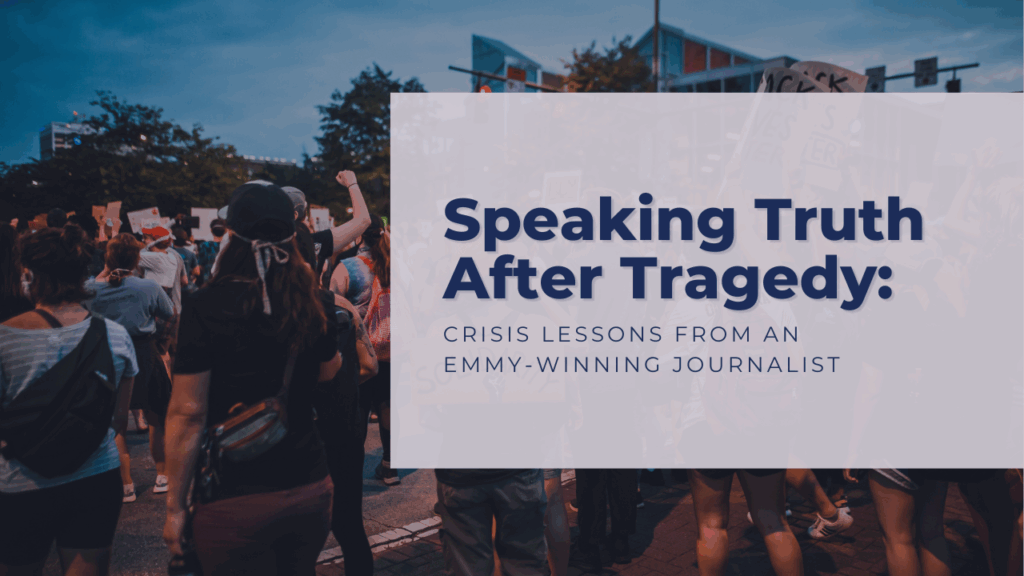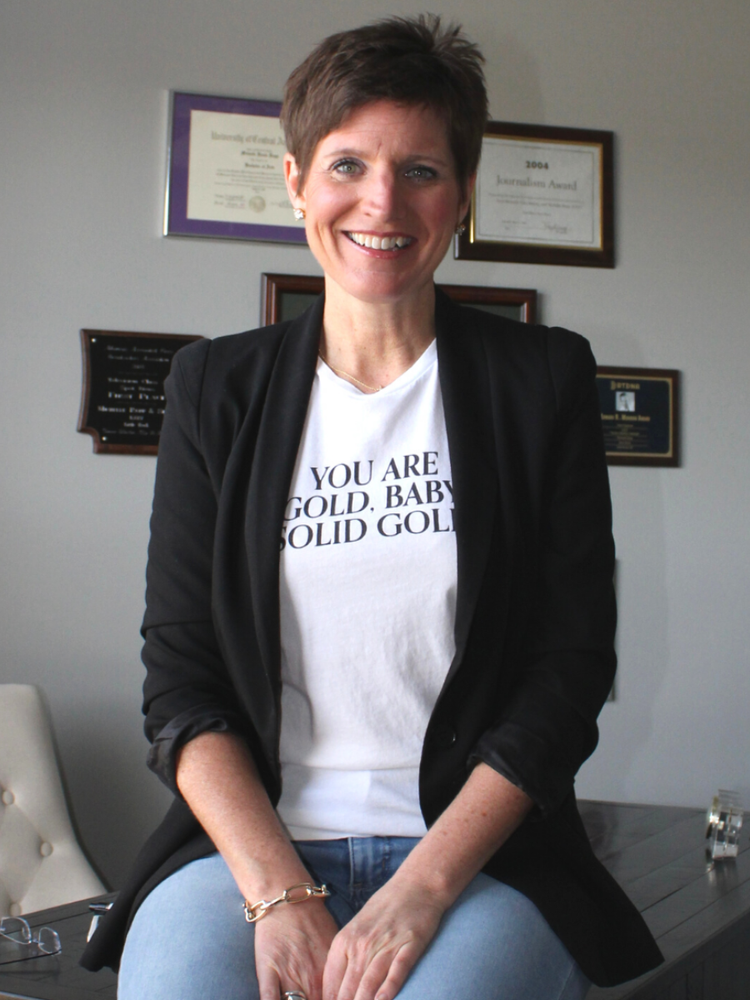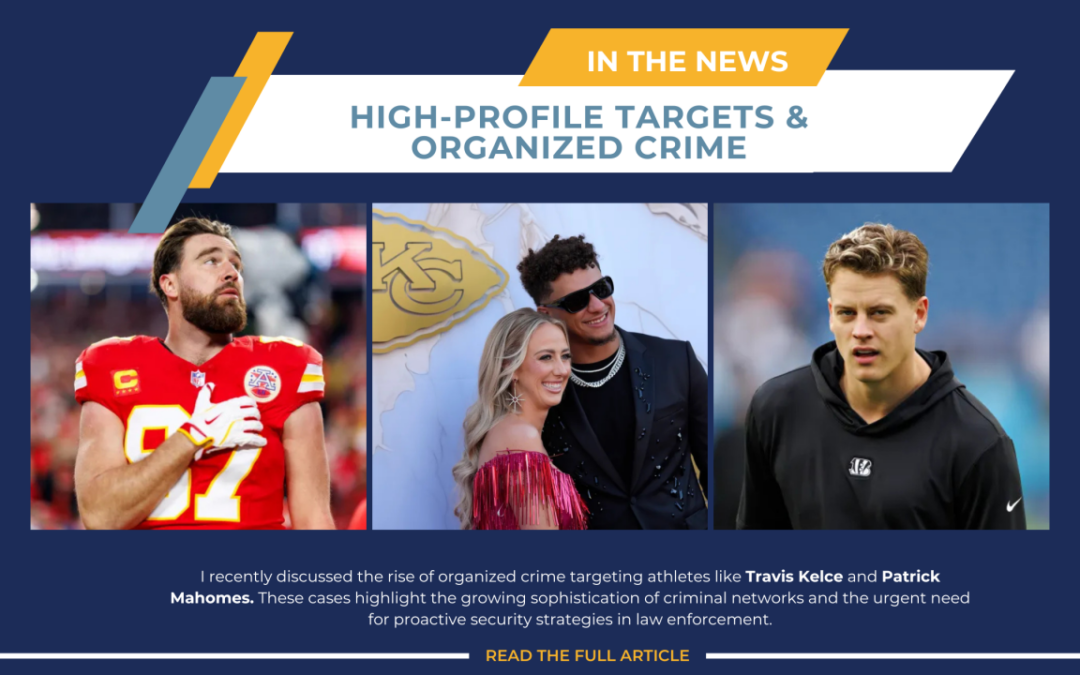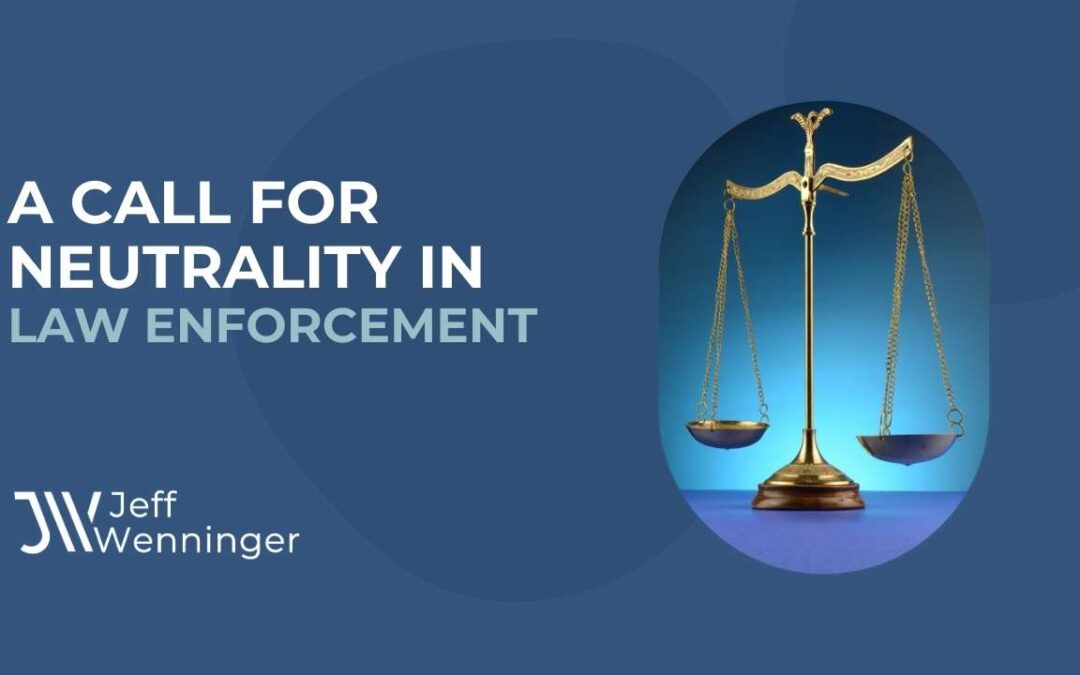
In preparation for my upcoming book, On Thin Ice, I had the privilege of sitting down with Emmy Award-winning journalist Michelle Rupp to discuss one of the most overlooked components of public safety: communication. We didn’t talk about spin. We talked about trust. We talked about careers that center around trauma. And we talked about what happens in those first crucial hours after tragedy hits… when the public is desperate for answers and the police are under pressure to respond.
Michelle spent more than two decades covering breaking news, both from the anchor desk and on the ground. Today, through her firm, Memorable Results Media, she helps local agencies, private companies, corporations, and nonprofits alike prepare for pivotal moments—so they can lead with clarity and, in many cases, increase public trust and even revenue. What struck me during our conversation was how aligned our views were on leadership, accountability, and the quiet courage it takes to speak plainly when the truth is difficult to hear.
This piece is about that courage. And it starts in Tallahassee.
A Moment of Courage
On April 17, 2025, a 20-year-old gunman opened fire at Florida State University. Two people were killed. Six more were injured. The suspect, the stepson of a Leon County sheriff’s deputy, was shot by police and taken into custody.
Within hours, Leon County Sheriff Walt McNeil stepped to the podium and masterfully did what too many leaders hesitate to do. He told the truth.
Sheriff McNeil confronted the painful news with poise. After taking a deep breath, he shared, “Unfortunately, her son had access to one of her weapons, and that was one of the weapons found at the scene. We are continuing our investigation as to how that weapon was used and what other weapons, perhaps, he may have had access to.”
He acknowledged the shooter’s family connection to law enforcement. He confirmed that the weapon used was a former service firearm legally purchased by the suspect’s stepmother, a longtime respected deputy. He didn’t hedge or delay. He laid the facts on the table, even when those facts weren’t easy to say.
That’s what leadership looks like. That’s how trust is cultivated.
For a weaker leader, it would’ve been tempting to leave that detail out to avoid headlines or protect the department’s image. Instead, Sheriff McNeil modeled something far more powerful: transparency that didn’t leave space for rumors or accusations. He made it clear the department had nothing to hide. In doing so, he preserved the public’s respect by maintaining the trust necessary during times of crisis, a powerful moment reflective of the trust gained by relationships already made.
It reminded me of a principle laid out by Sir Robert Peel, the father of modern policing:
“The power of the police to fulfill their functions and duties is dependent on public approval of their existence, actions, and behaviors, and on their ability to secure and maintain public respect.”
Public trust is not granted because of the badge. It is earned through action. And in moments like this, it is either strengthened or lost.
Preparation Happens Long Before the Press Conference
These kinds of moments don’t happen by accident. They’re the result of preparation, consistent messaging, and strong relationships between law enforcement and the media.

Michelle Rupp has seen both sides of crisis communication. As an Emmy Award-winning journalist, she spent more than two decades reporting live from crime scenes, natural disasters, and high-pressure public emergencies—delivering critical information when clarity and accuracy mattered most.
Over time, her role evolved from journalist to trusted collaborator. One pivotal moment came when the Little Rock Police Department invited her to observe a summer active shooter training at Hall High School. The drill, conducted in the absence of students, brought together law enforcement and school administrators. What struck her most was the transparency behind it.
“I remember thinking, this is so important that you’re planning for this scenario,” she said. “And you’re not being secretive about it.”
That experience, along with countless others, helped shape Michelle’s view of communication as a powerful form of civic leadership.
The First Amendment and the First Five Minutes
Michelle emphasized that what the public wants in a crisis isn’t polish. It’s honesty.
She recalled the strength of the Tallahassee press conference. “The chief carried himself with a level of transparency and excellence. When he stepped up to the mic, the reporters already knew him. They’d built a relationship with him. And that mutual trust was reflected in their questions.”
Michelle’s point is vital. If the relationship between a department and the media didn’t exist before the crisis, you won’t build it in the middle of one.
The bond between police and press may seem adversarial at times, but much can be done to cultivate a mutually respectful relationship that serves the needs of both. Law enforcement and journalists are both sworn to serve the public. A free and questioning press isn’t a threat to the sanctity of law enforcement. On the contrary, it’s a partnership to nurture and better serve the public.
The Public Doesn’t Expect Perfection
“I’m not an attorney,” Michelle said. “So an attorney might tell you to keep your mouth shut. I’m going to tell you to say as much as you can without jeopardizing anything.”
The public doesn’t need all the answers at once. They just need to know you’re not hiding anything. They need to know you see them.
“If I can get you as much information as I can at this point in time and tell you I will give you more when I can, that builds trust.”
Michelle still hears from police personnel she worked with years ago. “I still have some of the relationships I built and fostered today. Long after I left this television market, I would still have different officers I had developed relationships with send a text message and say, ‘We have something going on.’”
That support matters for officers and organizational leaders standing at the podium or on the front lines. “Sometimes it’s nice to know there’s someone right next to you just standing there with you,” she said. “You’re not out on that limb by yourself.”
Moving Forward, Together
The agencies that get this right aren’t just the ones with a crisis plan. They’re the ones building real relationships before anything ever goes wrong—with the media, with the community, and with each other.
Michelle and I agree that we saw that in Tallahassee. They didn’t wait to craft a narrative. Sheriff Walt McNeil told the truth, clearly and quickly, and that made all the difference.
Because in law enforcement, trust is the foundation. It’s what makes everything else possible.



